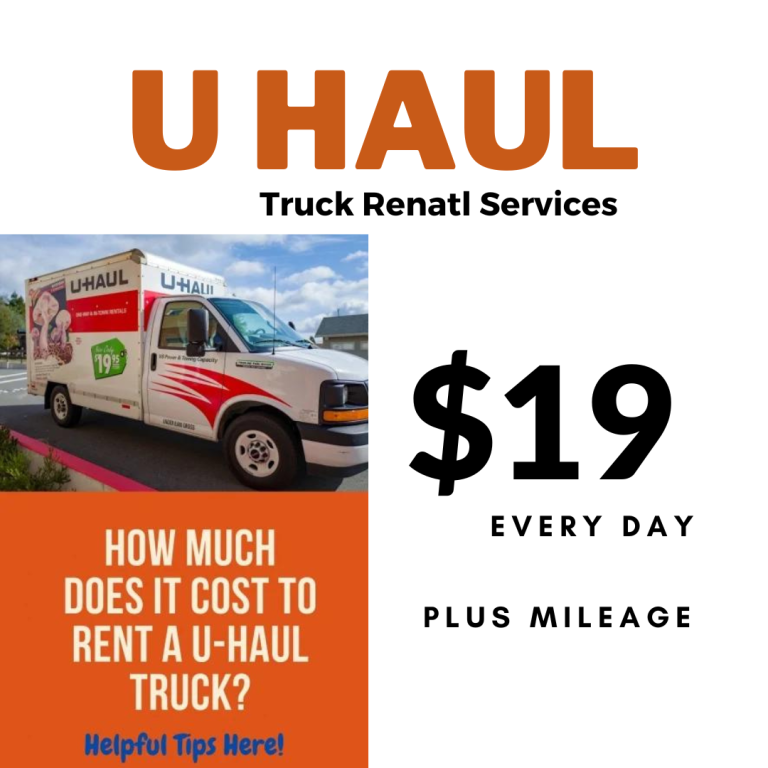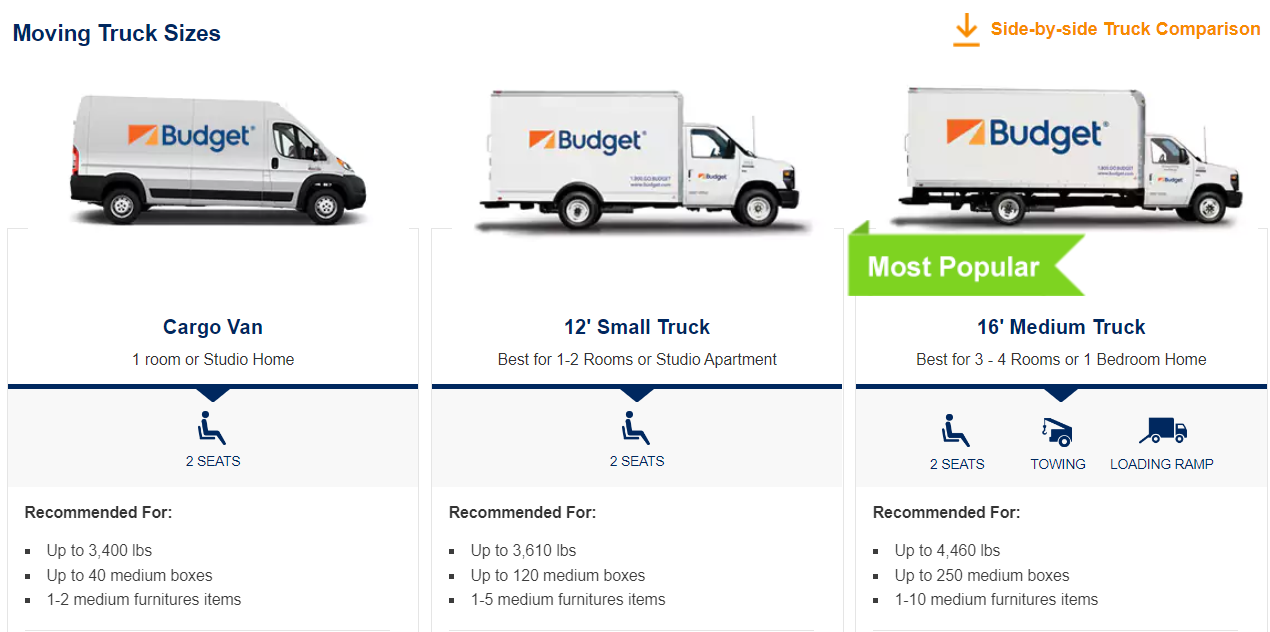Moving can be one of the most stressful experiences in life. And if you're tackling a large move, the logistics can seem overwhelming. One of the biggest questions is often: "How much will it cost to rent a large U-Haul truck?" The answer, unfortunately, isn't simple. It depends on a variety of factors.
This comprehensive guide will break down all the costs associated with renting a large U-Haul truck, from the base rental fee to potential hidden charges. We'll equip you with the knowledge you need to budget accurately and avoid any nasty surprises. Let's dive in and get you moving with confidence!
How Much Does It Really Cost to Rent a Large U-Haul Truck? A Comprehensive Guide
Why a Large U-Haul Truck?
Before we get into the nitty-gritty of pricing, let's clarify what we mean by "large." U-Haul typically considers trucks of 20 feet or more to be in the "large" category. These trucks are ideal for:
- Moving a 3+ bedroom house
- Relocating a small office
- Transporting large items like pianos or appliances
Renting a large truck can save you multiple trips. This can save you time, money, and a whole lot of headaches.

The Base Rental Fee: What You Need to Know
The base rental fee is the initial cost you'll see advertised. This is often the starting point for your budgeting, but it's crucial to understand that this is just the beginning.
- Local vs. One-Way Rentals: Local rentals, where you pick up and drop off the truck at the same location, usually have a lower base fee. One-way rentals, ideal for long-distance moves, tend to have higher base fees to account for the truck's relocation.
- Day of the Week and Season: Just like airline tickets, U-Haul rental prices fluctuate based on demand. Weekends and the end/beginning of the month are peak times, often resulting in higher prices. Summer is also a popular moving season, so expect to pay more during these months.
- Truck Size Matters: Obviously, the larger the truck, the higher the base rental fee. U-Haul offers trucks ranging from 10-foot vans to 26-foot trucks. Choose the right size for your needs to avoid overpaying.
- Limited Mileage: Base rental fees often include a limited number of miles. Exceeding this mileage allowance will result in an additional per-mile charge.

Pro tips from us: Plan your move for a weekday during the off-season (fall or winter) to snag the best deals on the base rental fee. Consider a local rental if possible, even if it means making multiple trips.
Mileage Costs: The Variable Expense

Mileage is a significant cost factor, especially for one-way moves. U-Haul charges a per-mile fee, which can vary depending on:
- Distance of the Move: Longer distances naturally incur higher mileage charges.
- Truck Size: Larger trucks may have slightly higher per-mile rates.
- Location: Mileage rates can differ based on the pickup and drop-off locations.
Estimating Mileage:
- Use online mapping tools like Google Maps to accurately calculate the distance between your origin and destination.
- Factor in potential detours or unexpected routes due to traffic or road closures.
- Add extra miles for local trips you might need to make for packing supplies or errands.
Common mistakes to avoid are: Underestimating the total mileage. Always overestimate to avoid surprise charges upon return.
Insurance Coverage: Protecting Yourself and Your Belongings
U-Haul offers various insurance options to protect you, the truck, and your belongings. While these are optional, they're highly recommended.
- Damage Coverage: Covers damages to the U-Haul truck itself. This is crucial in case of accidents or unforeseen incidents.
- Cargo Protection: Protects your belongings from damage or loss during transit.
- Supplemental Liability Insurance: Provides additional liability coverage in case you're at fault in an accident.
Based on my experience: Investing in adequate insurance coverage is worth the peace of mind. The cost of repairs or replacement of damaged goods can far outweigh the insurance premium. Read the fine print carefully to understand what's covered and what's not.
Fuel Costs: Filling Up the Tank
U-Haul trucks are notorious gas guzzlers. Factor in fuel costs when budgeting for your move.
- Fuel Efficiency: Large U-Haul trucks typically get very low gas mileage (around 8-12 miles per gallon).
- Distance of the Move: The longer the distance, the more fuel you'll need.
- Fuel Prices: Gas prices fluctuate, so check current prices in your area and along your route.
- U-Haul Fuel Policy: U-Haul requires you to return the truck with the same fuel level as when you picked it up. Failure to do so will result in refueling charges.
Pro tips from us: Refuel the truck shortly before returning it to avoid inflated refueling charges from U-Haul. Use gas price apps to find the cheapest gas stations along your route.
Additional Fees: Be Aware of Hidden Costs
Beyond the base rental fee, mileage, insurance, and fuel, be aware of these potential additional fees:
- Environmental Fees: Some locations charge environmental fees to cover disposal costs.
- Taxes: Sales tax will be added to your rental charges.
- Late Return Fees: Returning the truck late can result in significant late fees.
- Cleaning Fees: If the truck is returned excessively dirty, you may be charged a cleaning fee.
- Equipment Rental: Charges for dollies, furniture pads, and other moving equipment.
Example Scenario: Estimating the Cost of a 26-Foot U-Haul Rental
Let's walk through an example to illustrate how these costs add up.
- Move: One-way move from Chicago to Denver (approximately 1,000 miles).
- Truck: 26-foot U-Haul truck.
- Rental Period: 4 days (including travel time).
Here's a rough estimate:
- Base Rental Fee (One-Way): \$800 - \$1200 (depending on demand and time of year)
- Mileage (1,000 miles x \$0.99/mile): \$990
- Insurance (4 days x \$40/day): \$160
- Fuel (1,000 miles / 8 mpg = 125 gallons x \$4/gallon): \$500
- Environmental Fee: \$25
- Taxes (approx. 7%): \$175 - \$220
- Total Estimated Cost: \$2650 - \$3095
Important Note: This is just an estimate. Actual costs may vary. Always get a quote directly from U-Haul.
Tips for Saving Money on Your U-Haul Rental
- Compare Prices: Get quotes from multiple U-Haul locations and compare prices.
- Consider Alternatives: Explore other moving options, such as portable storage containers or professional moving companies.
- Pack Efficiently: Minimize the amount of stuff you need to move to reduce the truck size.
- Discounts: Inquire about discounts for students, military personnel, or AAA members.
- Avoid Peak Times: Move during the off-season or on a weekday to save money.
- Book in Advance: Booking your truck well in advance can sometimes lock in a lower rate.
The U-Haul Website: Your Best Friend for Accurate Quotes
The best way to determine the exact cost of renting a large U-Haul truck is to use the U-Haul website (https://www.uhaul.com/).
- Enter your pickup and drop-off locations.
- Select your desired truck size.
- Choose your rental dates.
- Add any optional insurance coverage.
- Review the total estimated cost.
Understanding U-Haul's Quote System
The U-Haul website provides an estimate. The final cost may vary based on availability, actual mileage, and other factors.
External Resource: Penske Truck Rental also offers large trucks and could be a good comparison.
Making the Right Decision for Your Move
Renting a large U-Haul truck can be a cost-effective way to move your belongings, especially for long-distance moves. However, it's crucial to understand all the costs involved and plan accordingly.
By carefully considering the factors outlined in this guide, you can create an accurate budget and avoid any surprises. Good luck with your move!
In Conclusion
Determining how much it costs to rent a large U-Haul truck involves considering various factors, from the base rental fee and mileage to insurance, fuel, and potential hidden charges. Understanding these costs and planning accordingly is essential for a smooth and budget-friendly move. Utilize U-Haul's website for accurate quotes, explore cost-saving strategies, and carefully weigh your options to make the best decision for your specific moving needs. By taking a proactive approach, you can confidently navigate the complexities of U-Haul rentals and ensure a successful relocation.